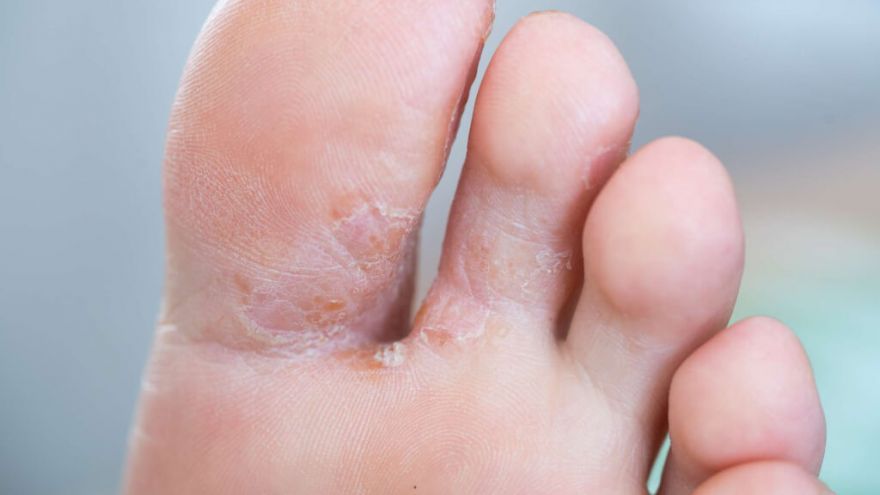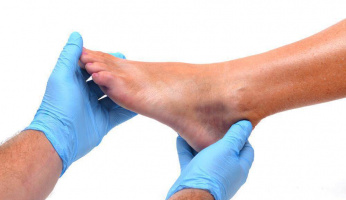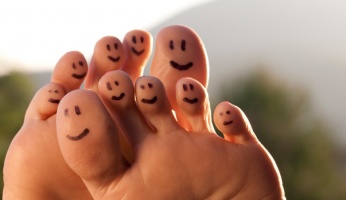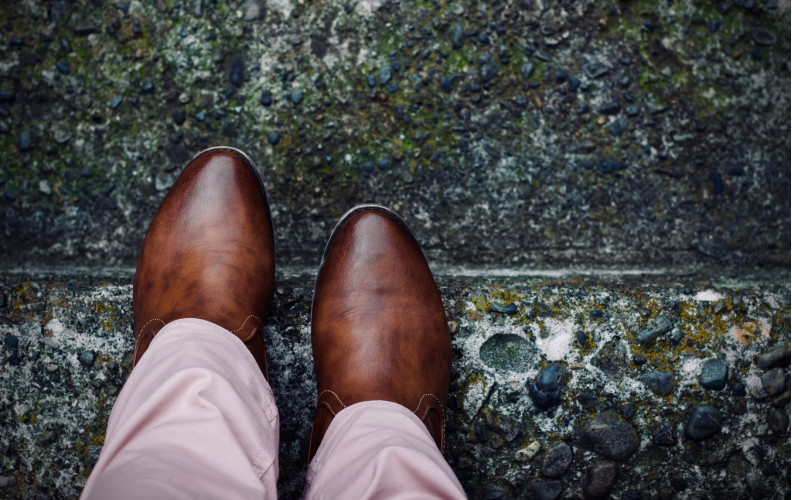Why Do My Feet Itch at Night?
 Why Do My Feet Itch at Night? www.walkjogrun.net
Why Do My Feet Itch at Night? www.walkjogrun.net Many things can cause itchy feet. And the fix could be simple or complicated. Some of the reasons could be dry skin, an allergic reaction, an underlying condition, or a change in your medications. But, sometimes the cause is not so obvious. So, why do your feet itch at night?
Causes of itchy feet
When your skin is itchy it is called pruritus. And pruritus of the feet may be caused by several things.
A few of the causes are:
- Dry skin
- Psoriasis
- Eczema
- Diabetes
- Allergies
- Fungus (Athlete’s foot)
- Underlying condition
- Scabies
Dry skin
As the weather changes, so do the condition of the skin. That includes your feet. When it is colder outside, the skin on your feet may become dry and cause your feet to itch at night.

When the skin on your feet is dry you may have some cracking, flaky skin, and itching.
Psoriasis
Psoriasis presents with patchy red areas on the skin, and these areas may be accompanied by puss-filled bumps or have a silver scaly appearance.
You may even experience some pain and swelling in your joints and soreness on the soles of your feet.
Eczema
Although the itching with eczema may be present on other areas of your body, some of the symptoms are similar to psoriasis, except there is no swelling of the joints.
The specific type of eczema that affects your hands and feet is called dyshidrotic dermatitis.
Diabetes
A condition called eruptive xanthomatosis causes itchy feet when your blood sugar levels are not maintained within a normal range. Eruptive xanthomatosis can be reversed once your blood sugar levels are back to normal.
It appears with small yellow bumps that have redness around them and elevated cholesterol numbers. You may experience itching on your arms, hands, legs, and buttocks also.
Then there is diabetic peripheral neuropathy, a progressive disorder and usually results from uncontrolled blood sugar levels over time.
It may present as:
- Decreased sensation in your feet
- Tingling
- Numbness
- Itching
- Burning sensation
This condition is not reversible.
Also, peripheral artery disease, this condition is affected by elevated blood sugar levels. The sugar in your blood damages your arteries and results in poor circulation, and decreases oil production in your feet. This leads to dry skin and itching.
Allergies
Itchiness from allergies can prove to be tricky. If you are experiencing an allergic reaction, it could be from one of the following:
- Something you have eaten
- A new medication
- The fabric you are wearing or have worn
- The detergent you have washed your clothes in
- A plant you have touched (grass and weeds)
Sometimes the reaction does not show up immediately, and you may have to use the process of elimination. And be aware, it is possible to become allergic to something you have been exposed to previously without any history of having an allergic reaction.
Fungus
During the summer months, the warmer temperatures cause you to sweat more and put you at an increased risk of developing Athlete’s foot. Athlete’s foot is the overgrowth of naturally occurring fungi on the skin. It presents with itching between your toes.

And if you have diabetes, you may be at an increased risk for the development of Athlete’s foot due to a lowered immune system.
Underlying conditions
There are a few underlying conditions that may increase the risk of your feet itching at night.
These conditions are:
- Kidney disease
- Liver disease
- Anemia
- Diabetes
- Pinched nerves
- Thyroid problems
- Hormonal changes (pregnancy, menopause)
Although, it is rare for some of these conditions to be the cause for why your feet itch at night. It is crucial to follow up with your Primary Care Provider (PCP) if you are not having any success with your at-home treatments.
Scabies
If your feet itch at night due to scabies, you will experience itchiness potentially all over your body. Itchy hands and feet are more common in children and babies.
But, if you are having any of the following symptoms:
- Pimply rash
- Sores
- Tiny blister
- Scales
- Grayish-white or skin-colored burrows that look like lines
And you live in a cramped space with multiple people, sleeping close to each other; you may have scabies and will need to seek treatment immediately for yourself and the place you are staying.
Home treatments for itchy feet
You may try these at-home treatments and preventions for itchy feet. As stated before, some of the treats will be easy, but the more complicated treatments will require that you call your PCP or schedule an appointment to see them.
Things you can try at home for your feet that itch at night are:
- Take warm or cold (avoid hot) showers to decrease drying out your skin
- Completely dry your feet after the shower
- Use mild soaps and laundry detergents (unscented)
- Moisturize your feet after your bath or shower
- Use a humidifier to moisten dry air from the heater
- Take baths every other day
- Avoid scratching
- Avoid fabrics that irritate your skin
- Use cooling ointments
- Exercise to help lower stress and blood sugar levels
If your feet continue to itch at night and you have tried the above treatments, please follow up with your PCP. Over-the-counter (OTC) medications like hydrocortisone cream and diphenhydramine may help if you are having an allergic reaction.
But, if you start to have any trouble breathing or notice that red rashes accompany the itching, please seek emergency care immediately. Clotrimazole 1% is an OTC medication that can be used to treat Athlete’s foot.
Having itchy feet can be irritating and affect your mood. If your daily life is altered due to your feet itching at night and you cannot find any relief, see your PCP and ask for further evaluation.
Sources
- , Itchy Skin, Clinic
- , Itchy skin, Clinic
- , Itchy skin, Gov
- , Can Diabetes Cause Itchy Feet?, Health Website
- , Why Do My Hands and Feet Itch?, Health Website















